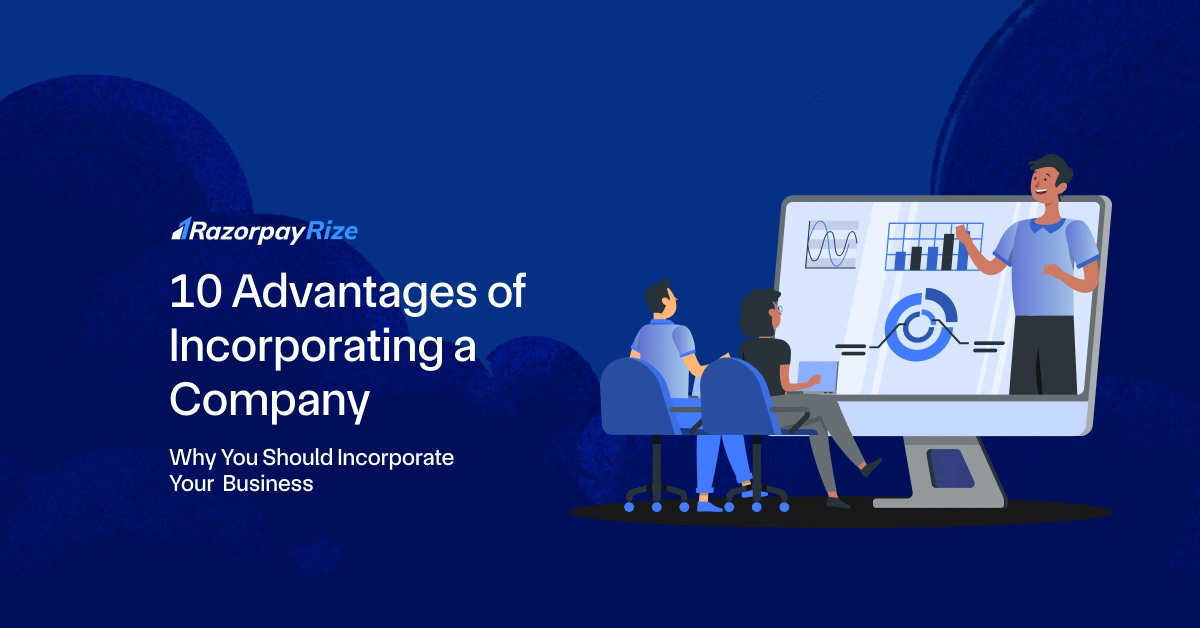A partnership firm is one of the most widely adopted business models in India, particularly among startups, family-run enterprises, and small to medium-sized businesses. It’s a simple, flexible structure that allows two or more individuals with a shared vision to run a business and earn profits collectively.
Unlike companies, partnership firms operate with fewer regulatory burdens, making them a preferred choice for those looking to collaborate with trusted associates. This business model is legally governed by the Indian Partnership Act, 1932, which lays down clear guidelines regarding the formation, functioning, rights, and obligations of partners within a firm.
In this blog, we’ll discuss the key rights, duties, and responsibilities of partners, explain how partnership property is treated, and examine how changes in firm structure affect partner roles.
Table of Contents
Rights of a Partner
Every partner in a firm has certain rights that are either explicitly stated in the partnership agreement or implied under the Indian Partnership Act, 1932. These rights ensure fairness and balance in the relationship among partners.
1. Right to Participate
Each partner has the right to take part in the daily operations and decision-making of the business unless otherwise agreed. This ensures collective control over the firm’s direction.
2. Right to Access Books
Partners can inspect and copy the books of account and other official records of the firm at any time. Transparency in record-keeping promotes mutual trust.
3. Right to Share Profits
Unless agreed otherwise, profits and losses are shared equally among the partners. The exact ratio can be decided in the partnership deed.
4. Right to Be Indemnified
Partners have the right to be reimbursed for any expenses or liabilities they personally incur while conducting business on behalf of the firm.
5. Right to Interest on Capital and Loans
If a partner contributes extra capital or gives a loan to the firm, they are entitled to interest as specified in the partnership agreement.
6. Right to stop the admission of a new partner
Every existing partner in a partnership firm has the right to oppose the admission of a new partner. A new partner cannot be added without the unanimous consent of all current partners.
7. Right to Dissolve the Firm
A partner may initiate the dissolution of the firm with the consent of other partners or as per the terms laid down in the agreement or the Act.
Looking to register your Partnership Firm? Rize can help you get started with expert guidance and fast processing. Register your firm today!
Duties of a Partner
With rights come responsibilities. Each partner is expected to uphold the values of the firm and contribute to its smooth functioning.
1. General Duties of Partners
Partners are legally obligated to manage and operate the business of the partnership firm. Their core responsibilities include the following:
- A partner must conduct the business in a manner that serves the greatest common benefit of the firm.
- Every partner is expected to act with honesty and integrity toward the other partners.
- A partner must provide accurate accounts and share all relevant information concerning the firm with fellow partners or their legal representatives.
2. Duty of Good Faith
Partners must act honestly and in good faith for the benefit of the firm and one another. Personal gains at the expense of the firm are strictly prohibited.
If a partner of a partnership firm earns any profit for personal gain, whether through a firm-related transaction, by using the firm’s property, business connections, or its name, they are obligated to disclose and return that profit to the firm.
3. Duty Not to Compete
A partner must not run a competing business or take actions that conflict with the interests of the firm.
4. Duty to Use Property Fairly
Partners should not use partnership property for personal benefit or unauthorised purposes.
A partner in a partnership firm is required to compensate the firm for any loss or damage caused by their willful negligence in conducting the firm’s business.
Related Read: Difference Between Company and Partnership
Partnership Property
Partnership property refers to all assets brought into the firm or acquired for its business. This includes:
- Tangible assets like land, buildings, and equipment
- Intangible assets like goodwill and intellectual property
- Profits and savings generated through the business
Ownership of this property is jointly held by all partners and used solely for the firm’s operations unless the partnership agreement specifies otherwise.
Application of Property of the Firm
The assets of the partnership are first used to settle the firm’s obligations. Here’s the typical order of application:
- Payment of debts and liabilities of the firm
- Repayment of partner loans or advances
- Return of capital contributions to partners
- Distribution of remaining profits among the partners as per the agreed ratio
This structure ensures fairness and legal compliance during profit sharing or dissolution.
Duties and Rights of Partners After Partnership Structure Changes
When a partnership undergoes changes like admitting a new partner, retiring an old one, or reconstituting the firm, some rights and duties get modified:
- New partners gain the same rights but are not liable for actions before their admission unless they agree.
- Retiring partners must settle dues and may remain liable for prior obligations unless a public notice of retirement is issued.
- Reconstituted firms require updates in the partnership deed, and all partners must consent to the new terms.
Related Read: Addition and Removal of Partners in Partnership Firm
Conclusion
Partnerships thrive when every partner fully understands that their individual rights come with corresponding duties toward the firm and their fellow partners. This mutual respect and sense of responsibility help to reduce misunderstandings and conflicts that can disrupt business operations.
By embracing both their privileges and obligations, partners can create an environment of trust, cooperation, and transparency. This culture acts like fertile soil where business ideas can grow, adapt, and flourish.
Over time, such partnerships are better positioned to attract investments, scale operations, and build a strong brand presence in the market, ensuring sustainable growth and profitability.
Frequently Asked Questions
Private Limited Company
(Pvt. Ltd.)
- Service-based businesses
- Businesses looking to issue shares
- Businesses seeking investment through equity-based funding
Limited Liability Partnership
(LLP)
- Professional services
- Firms seeking any capital contribution from Partners
- Firms sharing resources with limited liability
One Person Company
(OPC)
- Freelancers, Small-scale businesses
- Businesses looking for minimal compliance
- Businesses looking for single-ownership
Private Limited Company
(Pvt. Ltd.)
- Service-based businesses
- Businesses looking to issue shares
- Businesses seeking investment through equity-based funding
One Person Company
(OPC)
- Freelancers, Small-scale businesses
- Businesses looking for minimal compliance
- Businesses looking for single-ownership
Private Limited Company
(Pvt. Ltd.)
- Service-based businesses
- Businesses looking to issue shares
- Businesses seeking investment through equity-based funding
Limited Liability Partnership
(LLP)
- Professional services
- Firms seeking any capital contribution from Partners
- Firms sharing resources with limited liability
Frequently Asked Questions
What are the rights and duties of a nominal partner?
A Nominal Partner is someone who allows their name to be used in the partnership but does not have any real interest or liability in the firm’s business.
Rights:
- Right to participate in the management or share profits (unless otherwise agreed).
- Right to inspect books or take part in decision-making.
Duties:
- Must act honestly and not mislead third parties by lending their name.
- Can be held liable to third parties if the firm incurs debts or obligations using their name, even though they do not participate in management.
What are the four types of partnerships?
- General Partnership: All partners share equal responsibility and liability.
- Limited Partnership (LP): Includes both general partners (with unlimited liability) and limited partners (liability limited to their investment).
- Limited Liability Partnership (LLP): Partners have limited liability, and the firm has a separate legal identity.
- Joint Venture: A partnership for a specific project or period, usually temporary.
What are the rights of a new partner in a firm?
A new partner, once admitted, has the following rights:
- Right to participate in the management of the firm.
- Right to share in the profits and losses of the firm from the date of joining.
- Right to access and inspect the firm’s books of account.
- Right to be indemnified for any expenses or liabilities incurred on behalf of the firm before admission.
- Right to seek dissolution or retirement based on partnership terms.
What are the 5 levels of partnership?
The concept of "levels" of partnership can vary, but commonly, these levels are considered in professional or business partnerships:
- Junior Partner: Entry-level partner with limited responsibilities and profit share.
- Senior Partner: Partner with significant decision-making authority and larger profit share.
- Managing Partner: Responsible for day-to-day management of the firm.
- Equity Partner: Partner with an ownership stake and rights to profit sharing.
- Non-equity Partner: Partner who may have decision-making authority but does not share profits.
What is the income tax rate for AOP?
AOP (Association of Persons) is taxed as a separate entity under Indian Income Tax law. The tax rate for an AOP (not being a co-operative society) is generally as follows:
Under the New Tax Regime:


















